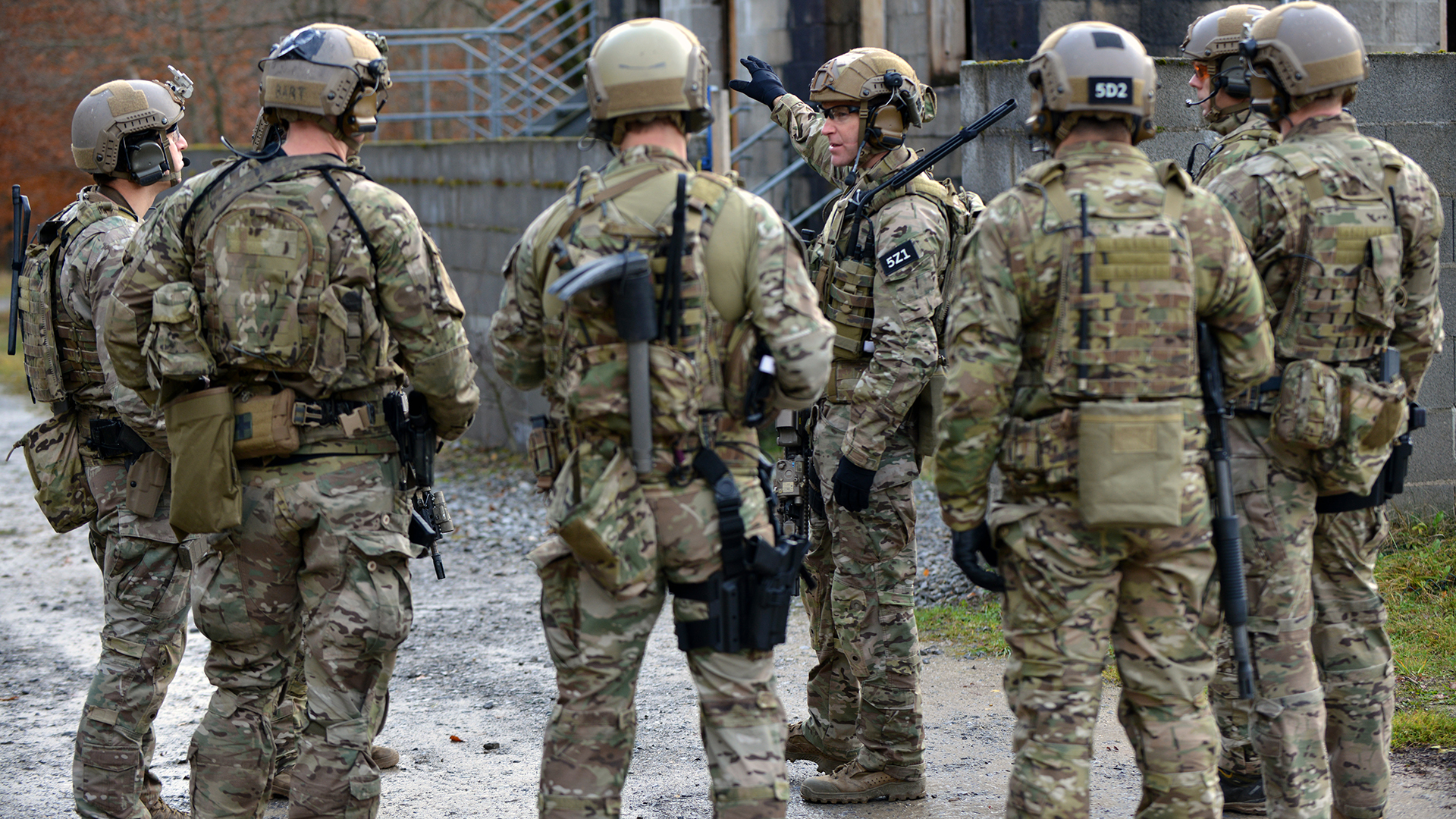

A small number of U.S. special operations forces are assigned to the U.S. embassy in Kyiv, but they do not conduct combat missions, Task & Purpose has confirmed.
The presence of special operators at the embassy in Ukraine was first revealed by one of the classified documents that were allegedly leaked by Airman 1st Class Jack Douglas Teixeira. The document said that 14 members of U.S. special operations forces were deployed to Ukraine as of February.
ABC News subsequently confirmed that some special operations forces are part of the U.S. military’s presence at the embassy in Kyiv. The troops at the embassy provide security for American diplomats on the ground and to make sure the weapons sent by the United States to Ukraine go where they are intended to, a U.S. official told Task & Purpose.
While Fox News personality Tucker Carlson has claimed that U.S. troops currently in Ukraine are “fighting Russian soldiers,” Biden administration officials have stressed that none of the U.S. service members in Ukraine are serving in combat roles.
Subscribe to Task & Purpose Today. Get the latest military news, entertainment, and gear in your inbox daily.
Rep. Mike Turner (R-Ohio) has said in recent interviews that the only U.S. troops in Ukraine are those service members assigned to protecting the embassy in Kyiv.
“We do not have troops on the ground,” Turner, chairman of the House Permanent Select Committee on Intelligence, said during Sunday’s edition of “Face the Nation” on CBS. “So, it’s an absolutely incorrect assumption from the documents that this individual [Teixeira] leaked.”
A Pentagon spokesman declined to provide any details about the American service members operating out of the embassy in Kyiv.
“For operational security and force protection reasons, we won’t discuss specific details regarding U.S. personnel,” Marine Lt. Col. Garron Garn told Task & Purpose on Tuesday. “As previously shared; however, DoD maintains a limited footprint inside of Ukraine for mission-critical functions at the Embassy, including providing embassy security support at the request of the U.S. Department of State, in coordination with the U.S. Department of State’s Diplomatic Security Service (DSS). This is not unique to Ukraine; DoD personnel provide Embassy security services all over the world.”
During a news briefing on Monday, Deputy Pentagon Press Secretary Sabrina Singh acknowledged that a small number of U.S. troops are deployed to Ukraine, but she was adamant that they are not fighting the Russians.
“To be clear, there are no U.S. combat troops conducting combat operations in Ukraine,” Singh told reporters. “And while we’re not going to go into the specific disposition of our forces for OPSEC [operational security] reasons, their duties include support to the Defense Attaché Office in support of our security assistance programs and end-use monitoring, as well as U.S. Embassy security support. This is not new, and again, something we’ve been transparent about and publicly with Congress as well.”
Retired Air Force Gen. Philip Breedlove, former commander of U.S. European Command and NATO, said the news of special operators being assigned to the U.S. embassy in Kyiv is not surprising at all.
Although Marine Security Guards provide security for U.S. embassies around the world, there are not enough Marines to protect these diplomatic posts during wartime, Breedlove told Task & Purpose on Tuesday.
Currently, the U.S. government is maintaining its embassy in Kyiv even though Ukraine is under attack by the Russians, so it makes sense to have U.S. special operations forces help protect the embassy.
“This is an embassy in the capital of a nation that is in a war, that has been invaded by a world superpower and is defending itself for its life, and we’re trying to keep an embassy open in that wartime capital,” Breedlove said. “It makes absolute sense to me that we might better prepare for the defense for our diplomats and our embassy.”
UPDATE: 04/18/2023; this story was updated on April 18 with comments from Rep. Mike Turner (R-Ohio), chairman of the House Permanent Select Committee on Intelligence.
The latest on Task & Purpose
- How much of a threat does Russia’s Pacific fleet pose to the US?
- 5th Security Force Assistance Brigade commander suspended
- Former Afghan interpreter graduates from boot camp to become a Marine
- Russia jams US GPS-guided weapons given to Ukraine, leaked info shows
- Taiwanese Air Force pilot’s ‘Winnie the Pooh patch’ causes international controversy
